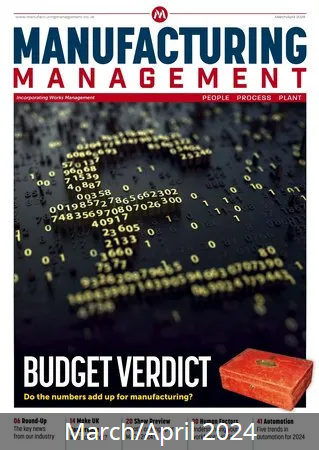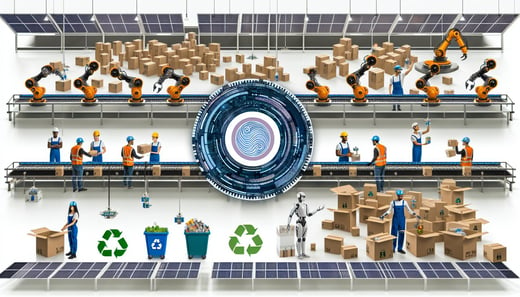
The human factor in manufacturing: when to automate and when not to
April 2024
Knowing your workforce and the full range of the job they do is crucial says 42T's manufacturing expert, David Griffin. When to use automation - and when not to - is critical in manufacturing.
"It seems obvious not to mess with things that you don't fully understand, for instance, pulling out a car part without first knowing its purpose or how to replace it. And yet, every day, some highly educated people do something similar but in their area of work," maintains David Griffin.
"For example, online service wizards sometimes tweak features thereby alienating loyal users or when thriving companies merge and end up damaging what made their successful companies as they failed to appreciate their company culture or what it was that made the company successful in the first place."
%20(2)%20(1)%20(1).webp?width=835&height=557&name=shutterstock_1510065638%20(1)%20(2)%20(1)%20(1).webp)
In his article, David Griffin, one of 42 Technology’s principle consultants, explores 5 key points to bear in mind when thinking about whether to replace the human factor in manufacturing with automation, including:
- Human insights vs automation
- Worker's unconscious expertise
- Automation blind spots
- Outside perspectives
- Why you should understand first, tinker later
As published in Manufacturing Management magazine (March/April issue 2024) click to read in full. Also published in this month's Made in Ireland magazine.
PDF download: Manufacturing Management - Human Factor article by David Griffin

and Eureka magazine's June/July issue on page 12.

If you would like to find out more, please contact David:
answers@42T.com | +44 (0)1480 302700 | www.linkedin.com/in/david-griffin
David is a Principle Consultant at 42 Technology and is an industry experienced mechanical engineer. He has spent a decade developing bespoke test and assembly automation in diverse fields ranging from motor winding to asthma inhaler manufacture. Also, several years developing and optimising solvent removal technology and continuous chemistry systems.
Share this article:
Related Articles

Manufacturing & Automation, Industrial
How to bring sensing in manufacturing out of the lab and onto the line

Manufacturing & Automation
Digitalisation in manufacturing - building on the foundations of good data

Manufacturing & Automation
Food & beverage industry - trends to be aware of in 2024

What will you ask us today?
We believe in asking the right questions to drive innovation; when we know the right questions, we generate the ideas to answer them.

